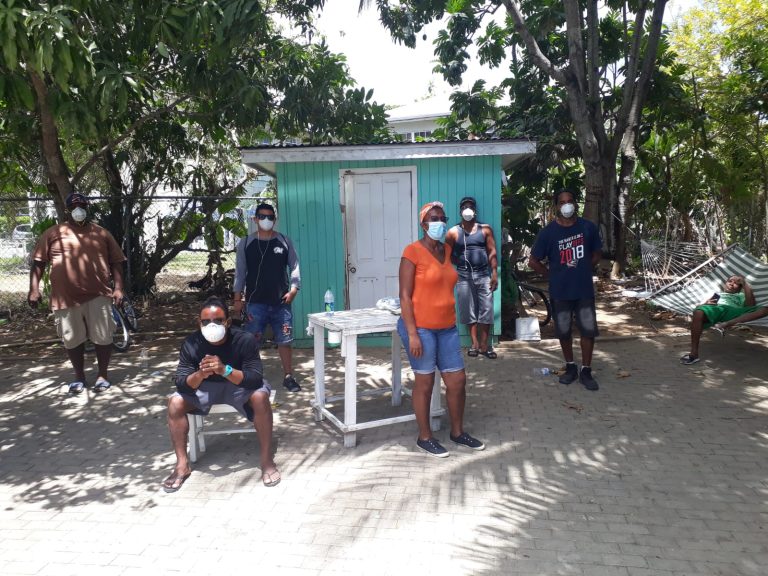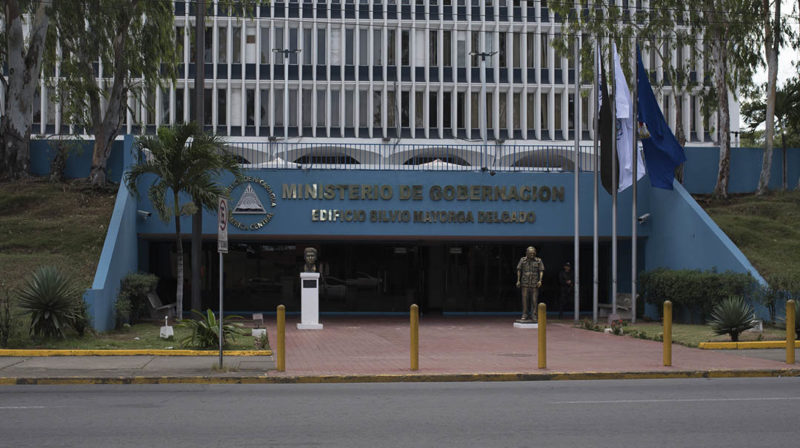14 de julio 2020

Children of Exile: The Births “Sowing Hope” in the Camp of Nicaraguan Farmers

PUBLICIDAD 1M
PUBLICIDAD 4D
PUBLICIDAD 5D
Repatriation flights cancelled without justification and cruise lines are asked to “pay for the Managua airport’s operating costs”

More than 500 Nicaraguans workers in the tourism and hotel industry, who have lost their jobs due to the Covid-19 health crisis, have been stranded for more than three months in the Cayman Islands, and in out of service commercial cruise ships, because of the government’s refusal to allow them their right to return home.
“We want to return to our homeland; it is our constitutional right. We are out of work, and we are surviving thanks to the good heart of the government and the people of the Cayman Islands who have been supporting us”, said Earny Atly, a Bluefields, Nicaragua native from Grand Cayman in a public video.
Atly is on the Caribbean island along with other 300 Nicaraguans who have requested to return to the country. On April 15, the Cayman Airways airline announced that it would fly to Managua to repatriate Nicaraguans on the island. However, Nicaragua’s Government rejected the flights telling Grand Cayman’s Government directly that they were closing off the borders, a closing which three months later has never been made official.
Since then, from the Caribbean island there have been repatriation flights for workers from other countries like Mexico, Dominican Republic, Jamaica, Honduras, Philippines, India, Canada, England, United States, while “the first country that was scheduled for this was Nicaragua, and we’re still here”, confirms Atly.
“Karla” is off the coast of Barbados along with 157 other Nicaraguans “floating”, on one of the Royal Caribbean’s cruise ships. Nicaragua’s Government cancelled their repatriation flight scheduled for June 18 without giving any justification, despite the fact that Royal Caribbean complied with the requirements imposed by Ortega, which included: Covid-19 tests for all crew members, transportation per diem, and payment of a charter flight.
“We should have been home long ago and we’re still here. What we don’t understand is they said -we want the tests, the charter flight-, and all this was covered by the company and still nothing”, argues “Karla”.
Jonathan Duarte is a Nicaraguan-US consultant who provides advice to Nicaraguans who are stranded in Cayman Islands and on touristic cruise ships. Years ago he worked as a consultant for the company Royal Caribbean; and he assures that Daniel Ortega’s government has imposed “unusual” conditions for the repatriation of Nicaraguans. He noted that besides the test and the charter flight, “they are now asking for the cruise lines to pay for the airport’s operation costs. They are extorting them, and if they don’t pay that they are not going to allow the Nicaraguans to enter,” he says.
CONFIDENCIAL consulted with the Ministry of Foreign Affairs about the Government’s reasons for limiting the return of these Nicaraguans and were referred to the Ministry of Interior. However, in the latter they referred us again to the Ministry of Foreign Affairs.

Nicaragua’s Home Ministry (Gobernacion)
In addition to the Nicaraguans in the Caribbean, there are other groups stranded on cruise ships located in countries such as South Africa, Dubai, England, Italy, and Brazil, with fewer possibilities of immediate return. “If those closest to us have not been able to return, it’s almost impossible for those in those countries”, said family members who preferred to conceal their identities.
“Article 13 of the Declaration of Human Rights reads that, everyone has the right to leave any country, including his own, and to return to his country, so this regime is violating the rights of its own citizens, and of international law”, says Duarte.
For Duarte, the government’s extortion of the cruise lines and refusal to assist the repatriation of fellow citizens could have a direct impact on the future employment opportunities of the Caribbean Coast community, where most of the stranded Nicas are from.
“I was a consultant for Royal Caribbean; in fact, I hired the managers of two ships, and I remember that there was a list of problem countries where we could not recruit. My concern is that they put Nicaragua in that list because this is a very important source of employment for the Caribbean Coast of Nicaragua, since there is no employment because of the Government”, says Duarte.
Shakira Simmons, a concerned Bluefields resident, assures that the State has shown no interest in solving the issues that the Caribbean Coast communities face, and worse, it aggravates them by preventing the repatriation, causing a possible loss of employment sources in the future. “One of the greatest demands of our region has been employment, and the government has been unable to solve this”, she says.
Most of the Nicaraguan’s on the Cayman Islands and cruises are workers native to the Caribbean Coast of Nicaragua, forced to migrate due to the lack of work opportunities in the Caribbean region. Their families have sought out the local authorities but have not received answers.
“The mayor and deputy mayor said they would do everything possible to find a solution [regarding the repatriation] but that this was not in their hands”, says Adelys Molina, member of the Bluefield’s families’ commission.
After the meeting with the authorities, the family members organized a protest at Parque Reyes in Bluefields, demanding an immediate answer to their repatriation request, but they were repressed by the Police. “They began to take away what they could, some girls had noisemakers and they took them from their hands, and they also grabbed the Nicaraguan flag and never returned it”, says Soraya Forbes from Bluefields.
For the residents of this city the Government indifference towards the repatriation of their citizens is closely related with the State’s historical neglect in the Caribbean region.
Rosa Simmons, who has worked on tourist ships for 16 years, said the Government does not even have a list of how many Nicaraguans are aboard working at high seas, “they only know that the people aboard the ships are black people from the Caribbean Coast, that we mean little or nothing to them”.
Archivado como:
PUBLICIDAD 3M
Periodista y productor general de los programas Esta Semana, Esta Noche y Confidencial Radio, dirigidos por Carlos F. Chamorro. Exiliado en Costa Rica desde junio de 2021.
PUBLICIDAD 3D